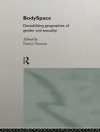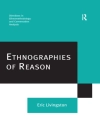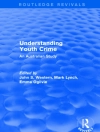Research design is of critical importance in social research, despite its relative neglect in many methods resources. Early consideration of design in relation to research questions leads to the elimination or diminution of threats to eventual research claims, by encouraging internal validity and substantially reducing the number of alternative explanations for any finite number of research ′observations′.
This new book: discusses the nature of design; gives an introduction to design notation; offers a flexible approach to new designs; looks at a range of standard design models; and presents craft tips for real-life problems and compromises. Most importantly, it provides the rationale for preferring one design over another within any given context. Each section is illustrated with case studies of real work and concludes with suggested readings and topics for discussion in seminars and workshops, making it an ideal textbook for postgraduate research methods courses.
Based on the author′s teaching on the ESRC Doctoral Training Centre 'Masters in Research Methods’ at the University of Birmingham, and his ongoing work for the ESRC Researcher Development Initiative, this is an essential text for postgraduate researchers and academics. There is no book like Research Design on the market that addresses all of these issues in an easy to comprehend style, for those who want to design research and make critical judgements about the designs of others.
Spis treści
PART ONE: INTRODUCTION – ′DESIGN′ AS DISTINCT FROM METHODS
What Is Research Design?
Introducing Designs in the Cycle of Research
PART TWO: THE PRELIMINARIES OF RESEARCH DESIGN
Identifying Researchable Questions
Warranting Research Claims
The Nature of Causal Claims
PART THREE: PUTTING IT ALL TOGETHER
Identifying the Sample or Cases
Comparing for Comparative Claims
Matters of Timing and Sequence
Evaluating Controlled Interventions
PART FOUR: MORE ADVANCED CONSIDERATIONS
Further Designs for Evaluation
Challenges for Validity
How Big Is a Difference?
A Second Principle of Ethics
PART FIVE: CONCLUSION
Revisiting the Need for Robust Design
O autorze
Stephen Gorard is the Professor of Education Research at the University of Birmingham, Academician of the Academy of Social Sciences, introducer for the ESRC Grant Awarding Panel A, and a methods expert for the US Institute of Education Science panel on Mathematics and Science. His research concerns the robust evaluation of education as a lifelong society-wide process, focused on issues of equity and effectiveness. He has successfully conducted over 70 projects funded by government and other sources, and is the author of hundreds of research books and articles. His work appears regularly in the media, and is much used by local and international policy-makers. He is currently an evaluator for the European Commission Directorate-General for Regional Policy, the Educational Endowment Foundation, the Learning and Skills Information Service, the Department of Work and Pensions, and the Food Standards Agency.












